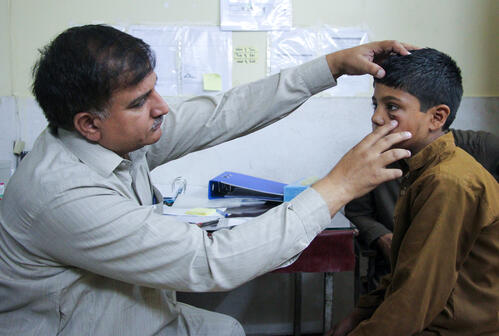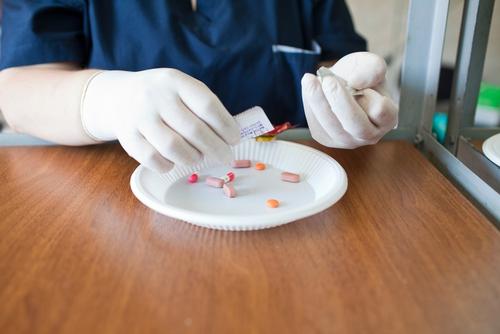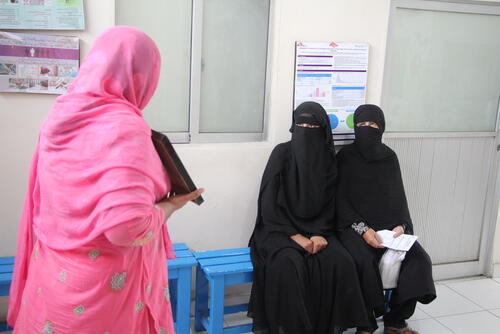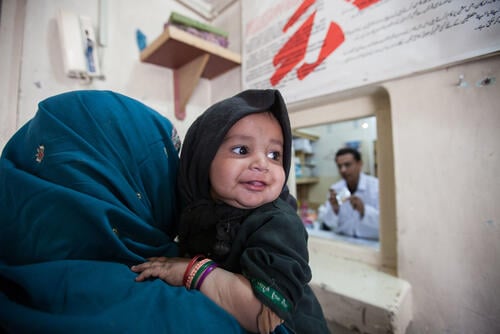A public health burden in Pakistan, cutaneous leishmaniasis (CL) cases have surged in the country’s northwestern Khyber Pakhtunkhwa province since the end of 2018. The health authorities have reported about 28,000 cases since November 2018, most of them from merged districts previously known as the Federally Administrated Tribal Areas, close to the border with Afghanistan. A recent upsurge in the province’s southernmost districts, particularly in South Waziristan, has driven people to the neighbouring district of Bannu or even to the provincial capital, Peshawar, for treatment.
Cutaneous leishmaniasis is a skin infection caused by a parasite transmitted by the bite of a phlebotomine sandfly and is endemic in Pakistan. Although not life threatening, it can cause severe stigma and psychological trauma. People with lesions and scars are often victimised and excluded from public life.
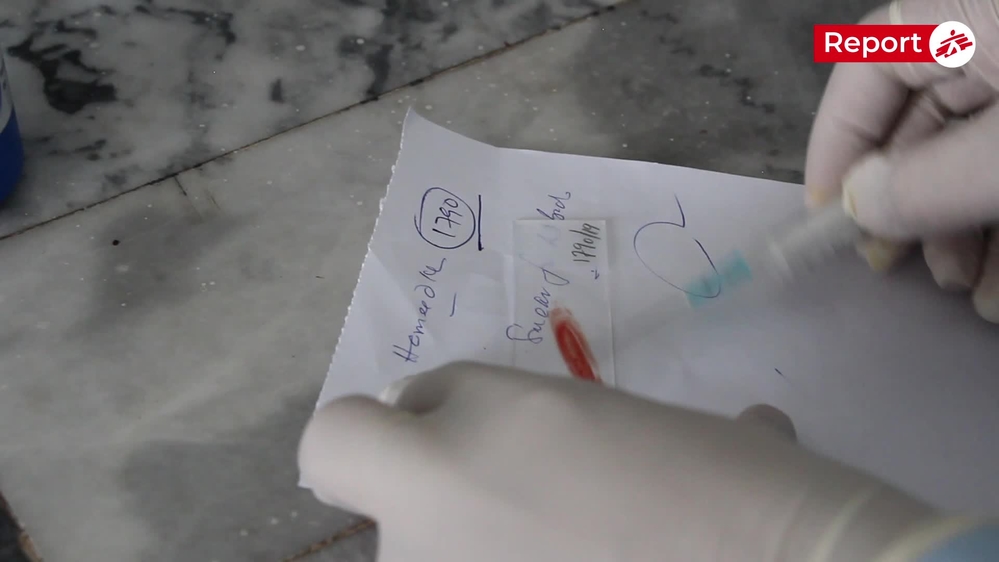
Cutaneous Leishmaniasis in Pakistan
One treatment centre at capacity, soon to open another
Working with the Ministry of Health, Médecins Sans Frontières (MSF) opened a dedicated treatment centre in Peshawar’s Naseerullah Babar Khan memorial hospital in May 2018 and will shortly be opening another at Bannu district headquarters hospital to address the dire needs in Khyber Pakhtunkhwa’s southern districts.
The treatment centre in Peshawar admits 250 to 300 new patients every month and has treated more than 2,300 people in total since its opening in May 2018. The facility is operating at full capacity, with patient numbers continuing to increase.
“This is the only specialised CL treatment centre in the whole of Khyber Pakhtunkhwa province,” says Dr Pervez Khan, in charge of the MSF treatment centre in Peshawar. “We have a cure rate of more than 95 per cent in 2019 and are constantly seeing more and more patients, which also demonstrates the heavy needs in the province.”
MSF also treats the disease in Quetta and Kuchlak in Balochistan province, where we are the biggest provider of treatment for the disease.
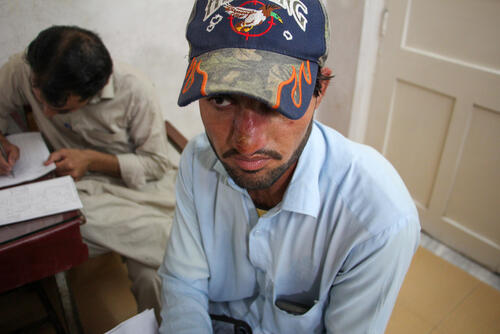
Expensive or unavailable – difficult access to treatment
Many people are unable to access medical treatment because it is too expensive, if available at all. Most government hospitals have limited drugs and no specialised staff, leaving people to buy the drugs themselves or pay to travel long distances to access free treatment in big cities – something many cannot afford to do.
Nine out of 10 members of Muhammad Jannat’s family from Karak district have cutaneous leishmaniasis. Two of his sons are receiving treatment, which means injections for at least 21 consecutive days, at Naseerullah Babar Khan memorial hospital in Peshawar.
Each trip from their village to Peshawar costs 1,400 rupees (US$ 9). Jannat asked the hospital administration to let his children stay there because he can’t bear the expense. He will bring two more members of his family for treatment after his sons complete theirs.
“There are high needs in my area,” says Jannat. “There should be a medical facility there as well. A poor person can’t reach here.”
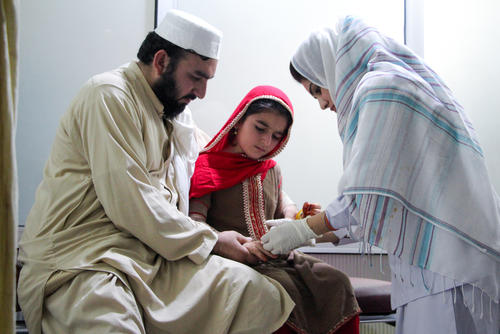
Limited drug options
Meglumine antimoniate, the first-line treatment for cutaneous leishmaniasis, is not produced locally in Pakistan. The health authorities therefore rely largely on imports by international organisations such as the World Health Organization and MSF. In many settings the doses each patient receives are insufficient, because of the drug’s limited availability and the lack of suitably trained medical staff.
“Meglumine antimoniate is the only option for people with CL in Pakistan,” says Suzette Kämink, an MSF tropical diseases expert currently supervising clinical study into alternative treatments for cutaneous leishmaniasis in Pakistan. “We have no evidence of any other drug or treatment method that is effective against leishmania tropica, the form of CL prevalent in Balochistan and Khyber Pakhtunkhwa provinces. There is certainly a need to look for other treatment options.”
Outreach to increase awareness
We have also started outreach activities to address the lack of awareness in communities about the disease and how to prevent it. The treatment centre in Peshawar has so far been the only option for thousands of people with cutaneous leishmaniasis in Khyber Pakhtunkhwa.
The new centre in Bannu will go some way to improving access to treatment for people in southern districts, but it is essential that more patients have access to quality drugs at affordable prices where they live in order to properly tackle the high prevalence of cutaneous leishmaniasis in the region.
“We have achieved far more than expected with the new cutaneous leishmaniasis services over the last year,” says Dr Siraj Muhammad, medical superintendent of Naseerullah Khan Babar memorial hospital in Peshawar. “Patients from 25 different districts seek services from this centre. We are satisfied with its progress. We are thankful to MSF for its services and support to the provincial department to deal with this medical issue.”



